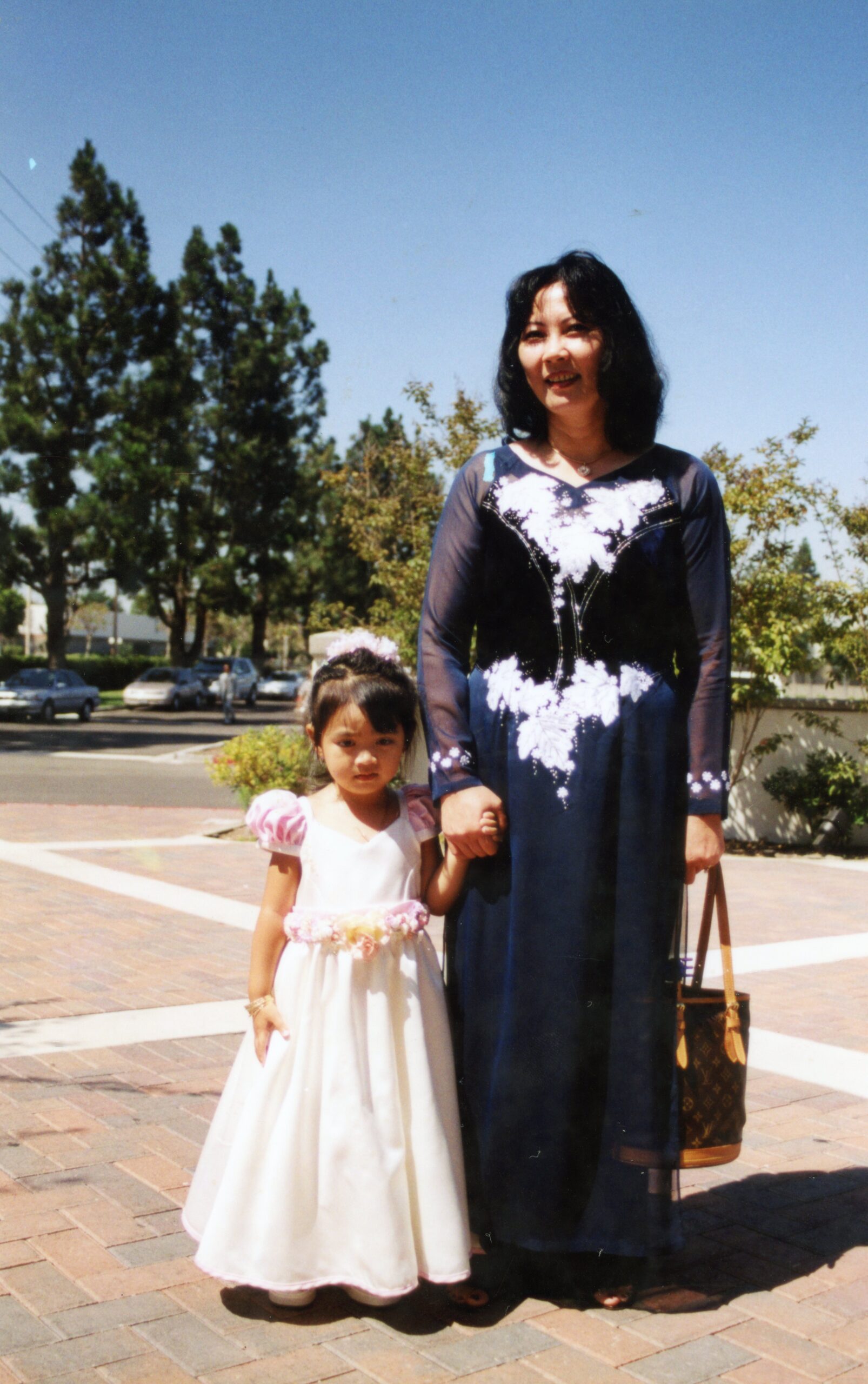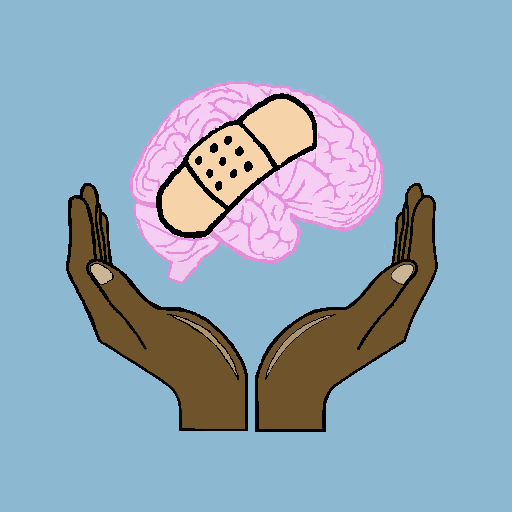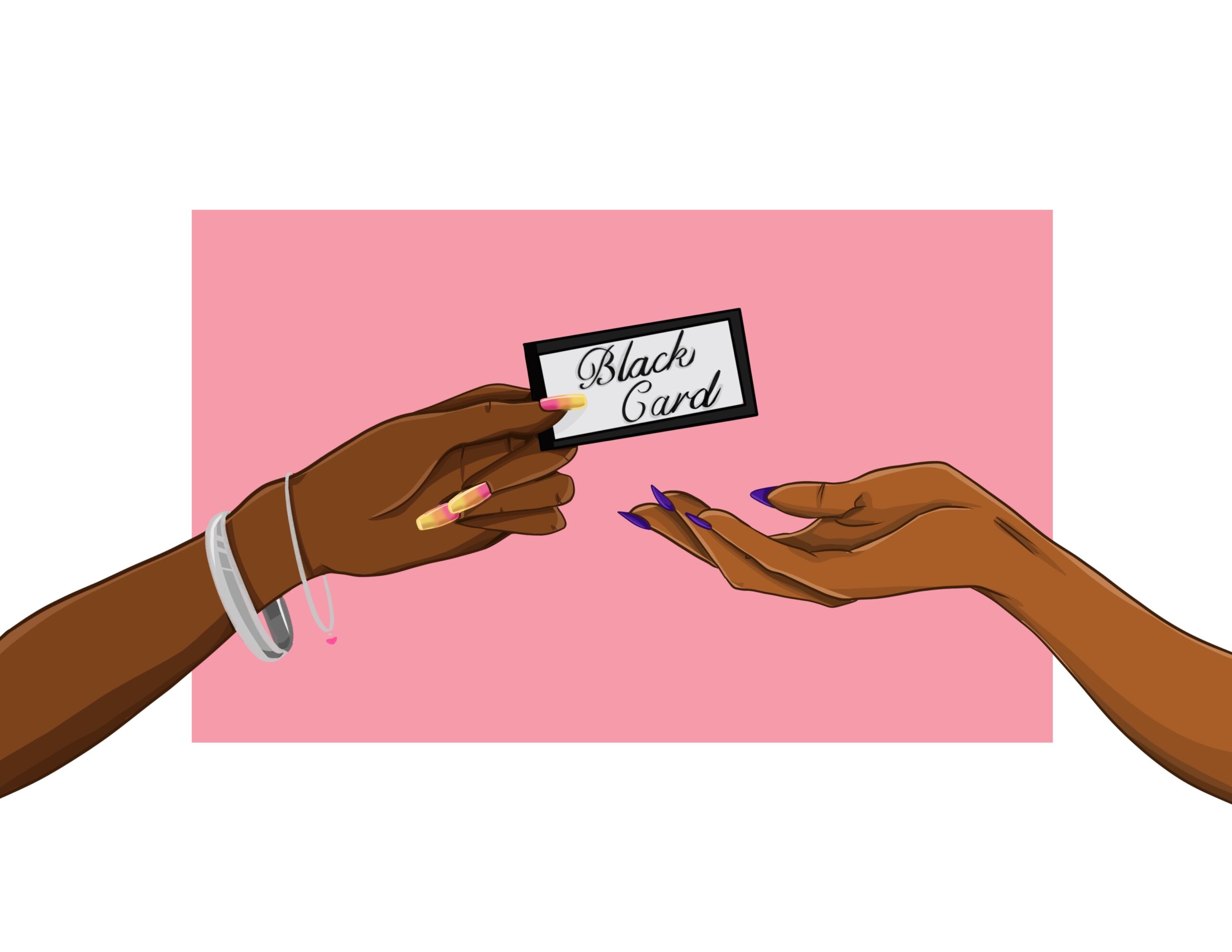The writer and her grandmother in an áo dài (Vietnamese dress).
By Jasmine Nguyen, Editor-in-Chief
The United States boasts of being a melting pot, made up of people from all over the globe who come in search for the American Dream and a better life. These immigrants’ cultures spread and are shared among all citizens, and while it’s a good thing, there is a danger to assimilation:
Their children or grandchildren may lose sight of the culture they are from.
The loss of heritage is something that I can vouch for. I’m Vietnamese and Thai but it doesn’t feel that way sometimes. The homeland my grandparents left seems so far, like a forgotten memory.
The culture, the food, the people I can see but it’s foggy, like a smudged-up window.
My parents were born in the United States and were children of immigrants. My mother’s family escaped to America after the Vietnam War, while my father’s family left Thailand in search of a better life.
I wasn’t really bullied in school for being Asian, maybe a few ignorant comments about eating dogs or being Jackie Chan’s niece; But there was a barrier between my peers and I due to not relating to the majority Latinx population.
Their families didn’t go to the same supermarkets my grandparents did, they didn’t know what type of snacks I was talking about. They didn’t celebrate Tết ( Lunar New Years ) or Tết Trung Thu (Mid-Autumn Festival) like me. Not really a big deal, but for six-year-old Jasmine, it was kind of isolating.
So when I finally started to attend my local Vietnamese youth group, I was excited to see other kids, who weren’t my cousins, that looked like me. Not only that, but they ate the same foods as me, and also celebrated the same holidays as me.
Unfortunately, as I grew older, I began to feel isolated at my youth group since most of the kids were first-generation, meaning their parents were the ones who came to the United States while my parents were born and raised here.
My Vietnamese was rusty and awkward compared to theirs, as their parents spoke to them in Vietnamese at home. They could translate easily, while I was used to speaking mostly English at home because it was my parents’ preferred language.
I really only spoke Vietnamese once a week when I would visit my mother’s parents and attend my Vietnamese classes on Saturdays.
My mother didn’t try to avoid speaking to us in Vietnamese, but because she wasn’t fluent in Vietnamese herself, and my father was Thai, she felt speaking to us in English was the easiest way to raise my sister and I.
I was insecure. At school, it was obvious that I was Asian, and I was proud of it. But compared to my Vietnamese peers, I felt fake. Even more so with my Thai side due to not speaking the language and only visiting the local Thai temple once a year.
Am I really Vietnamese or Thai if I can’t speak either one of the languages? Or do I not know the culture because I haven’t stepped foot into those countries?
The insecurity seeps in, as my grandfather once asked me, “Why do you say you’re Asian, not Thai when you introduce yourself?”
I didn’t realize I was doing that until he pointed it out. Maybe deep down I felt as though I couldn’t call myself Thai or Vietnamese. I was much more comfortable with the broad sense of what it meant to be Asian American.
But as I engaged in more conversations within the Asian American and Pacific Islander community, I realized I wasn’t alone, many others in the AAPI community feel the same way.
I know now that just because I don’t speak Vietnamese doesn’t mean I’m not Vietnamese. It doesn’t mean I’m not a part of Vietnamese culture.
Just because I don’t know every single part of Thai history doesn’t mean I’m not Thai.
I still worry that my family’s culture will die out with me though, so I’m trying to learn more about my family’s cultures. Even if it means learning new Vietnamese and Thai words one by one, or just listening to my grandparents’ stories.
It’s small steps, and I feel like I’m playing catch up, that I won’t really be able to fully understand the countries my family left behind.
But I’m hoping that I’ll be able to build something upon what I’ve learned of my family’s past to pass on to my kids in the future.


